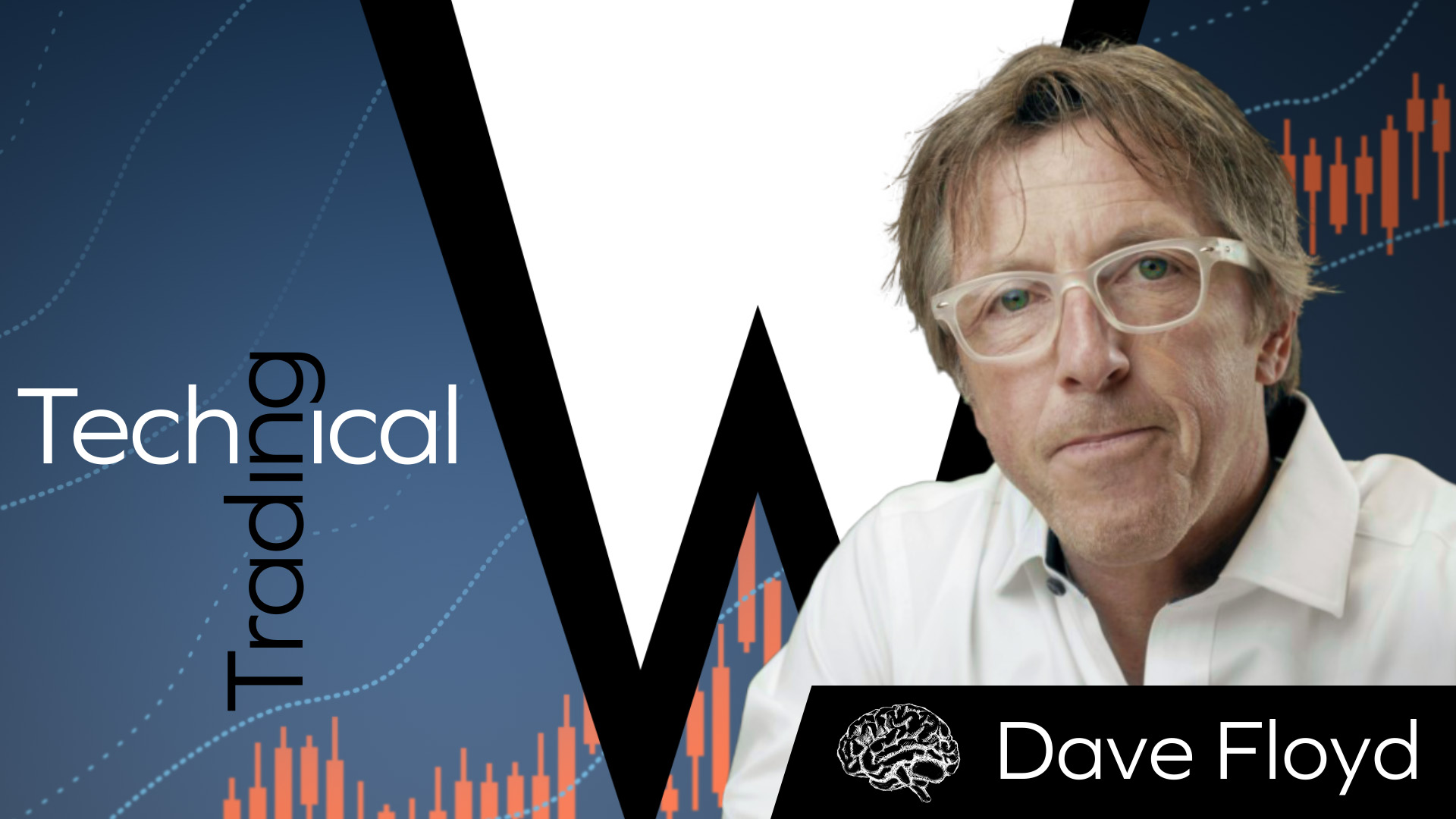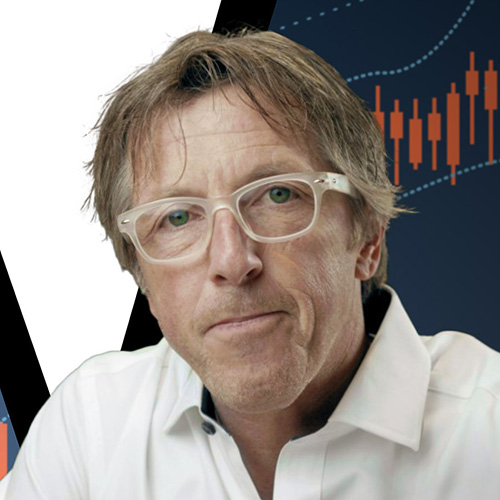Technical Trading with Dave Floyd

SHARE
Meet Dave
Meet Dave Floyd of Aspen Trading. Dave is going to guide you through foundational concepts every trader needs to know. Before you jump in, let’s get to know Dave and learn about his trading style and his perspective on investing. Note Dave’s emphasis on how who he is as a person informs who he is as an investor.
DAVID FLOYD: My name is David Floyd, I'm the founder of Aspen Trading Group, and I'd be considered a short-term technical trader. A lot of people think about short-term technical trader and they're kind of wondering what that is, it's kind of at the opposite end of the investment world. But basically, all I'm doing is I'm focusing on a handful of asset classes, S&P 500, 10-year note futures, and a handful of currency pairs.
And what I mean by short term is that I might be in trades that last five minutes, five hours, five days, or maybe a week or two. That's my time horizon. I'm not getting involved in the big macro picture. I'm looking at technical factors to drive where I think prices are going over a very short time frame.
I'm focusing on only a few specific markets for one simple reason, I don't think that I have the ability nor do most people have the ability to focus on a lot of markets and trade them very effectively. I think you have to be very specialized when you're short-term trading to get intimate with the price action and kind of get into the swing and the groove of how that instrument trades. So for me anything more than five instruments or so basically, there's a diminishing rate of return on my time spent trying to trade more than that number of instruments.
Given the nature of shorter-term trading, you're not usually going to have large losses or large wins. It's usually death by a thousand cuts or an accumulation of profits over time. So I don't have like a really nasty bad story. But what I can tell you is that it's really easy to lose sight of what your edge is.
Short-term trading requires a tremendous amount of focus and for me, I always have to remind myself after going through a period where I might be doing particularly well, I might let my guard down a little bit, being a little too cocky for lack of a better word. So that's something that constantly comes back into my awareness when I go through those periods.
And when that happens I really need to remind myself that I have to follow a very rigorous plan each day in order to maintain that edge, kind of like just a professional athlete, if they're doing really well but then they stop hitting the gym and stop doing cardio, they can't perform as well on the court or on the field. It's the same thing for trading, you've got to maintain that intensity each day and if you can't, you really shouldn't be in there trading.
I think if there was one thing that I could have known then that I know now, would have been really to have a deeper network of fellow traders to rely upon because the markets are always changing. And the way you're trading right now is not going to be the way you're trading probably in three, or four, maybe five years because the markets are always changing.
It's really critical that you have a sounding board. And I kind of lost sight of that after probably the early 2000s, after that first phase of my career where I had a transition more from purely scalping to a slightly longer time frame. I didn't have a built-in network of people at that point that I could say, hey, this is what worked for me, this is where I'm trying to transition to, what do you know about this? What am I doing wrong? What am I doing right?
So I think if I'd had that I would have saved myself probably two to three years of kind of trial and error and a little bit of frustration. So it's really critical that you stick to what you know but keep a good network of people around you that you can use as a sounding board and as mentors quite frankly.
First of all, as a trader, you have to be aware of your weaknesses because we all have them. And if you don't know what they are or you're ignoring them, you're going to do it at your own peril. For me, it's really simple, probably like most people but I think I might have it to the nth degree, I hate to lose. I hate to lose on trades. And you might, if you talk to someone like Denise Shull, that's probably because of some damage in my childhood. I was scarred somehow by not being good enough or always wanting to be really good at what I do.
So oftentimes I will hesitate getting into a trade because I'm waiting for it to be the perfect setup, which of course, we know never exists. You can only have so much information and then sometimes you just have to say you know what, close enough, I'm in. So I struggle with that no doubt. I miss plenty of really good trades because I try to overthink it and wait for everything perfect to line up, which of course, never happens.
I think kind of as a conduit to that, that follows me in terms of trade management, I have no problem cutting a trade in terms of a stop loss, no problem at all. And I have no problem being disciplined about waiting for a good trade setup. Where I think I probably fall down a little bit is managing that trade to get the most out of it before my thesis is no longer proven valid but no trade's perfect, if I could work on staying in my winning trades longer that would be wonderful.
Time horizon's critical. If you don't know the time horizon that you're going to be implementing a trade you're ultimately going to screw that trade up because if you're going into the trade not knowing if you're going to hold it for a year, a month, a week, or a day, that's going to completely impact the way you approach the analysis. So whenever somebody asks me what do you think of xyz? It's a really poor-- it's kind of a lazy question because it really is, what do you think of xyz over the next three months? Now I've got something to work with.
So you have to know what your time horizon is not only from that perspective but what's really critical is you've got to match that time horizon up with your personality. I for one like kind of immediate gratification kind of trades. I'm comfortable forecasting out short periods of time. I'm not comfortable saying, I think the dollar will be at x in five years. So I think it's ultimately critical that your time frame match your personality and your risk tolerance. And wherever that is, that's where you have to stay, and don't deviate outside that range.
Well, given that I've been doing this for well over 20 years and pretty much been doing it the same way, for the most part, other than making the adjustments as the market requires, I'm someone who's a big fan of just rinse and repeat. Do what's working, make adjustments as needed, and then rinse and repeat. Kind of the same way in my personal life, I'm a pretty consistent person.
So I think that helps me because in life just like in trading, there are certain processes you need to follow if you want to be a diligent saver and retire, if you want to maintain your house so it doesn't break down. I tend to be one of those people that's pretty pragmatic but at the same time, I can also just turn that off and let go for a little bit because that's important too.
So I'd say, by and large, the other thing too is I'm willing to take risks, if I have a good handle on what they are, and starting the business 20 odd years ago is a reflection on that. I was willing to take that shot after leaving a bank with a good salary, good benefits, and I was willing to say you know what, I'll give this a try. And I do that in my personal life too with the way we do our competitive sports and mountain bike riding and stuff. I'm always willing to take a risk.
And the best way for me to de-stress is without a doubt, being outdoors and rigorous physical activity. For us, it's mountain biking, and when I say us, my wife and I, we mountain bike all the time. We're skate skiers in the winter, backcountry snowshoeing, that's the kind of stuff that gets me juiced and kind of helps me clear my head.
I also play music, play music in a band, and that just is the ultimate way to not only express myself but a way to kind of get into-- tap into that creative side, which oddly enough traders are a pretty creative bunch when you really get right down to it. It's not all science, a lot of it is creative input. So playing music and doing rigorous sporting activities that's how I decompress.
[MUSIC PLAYING]
